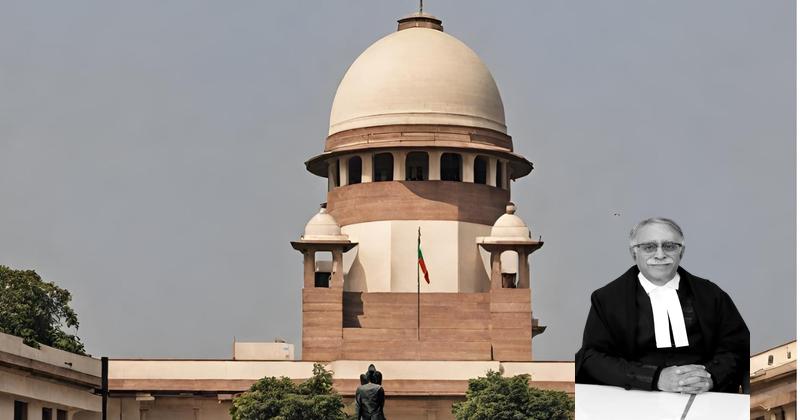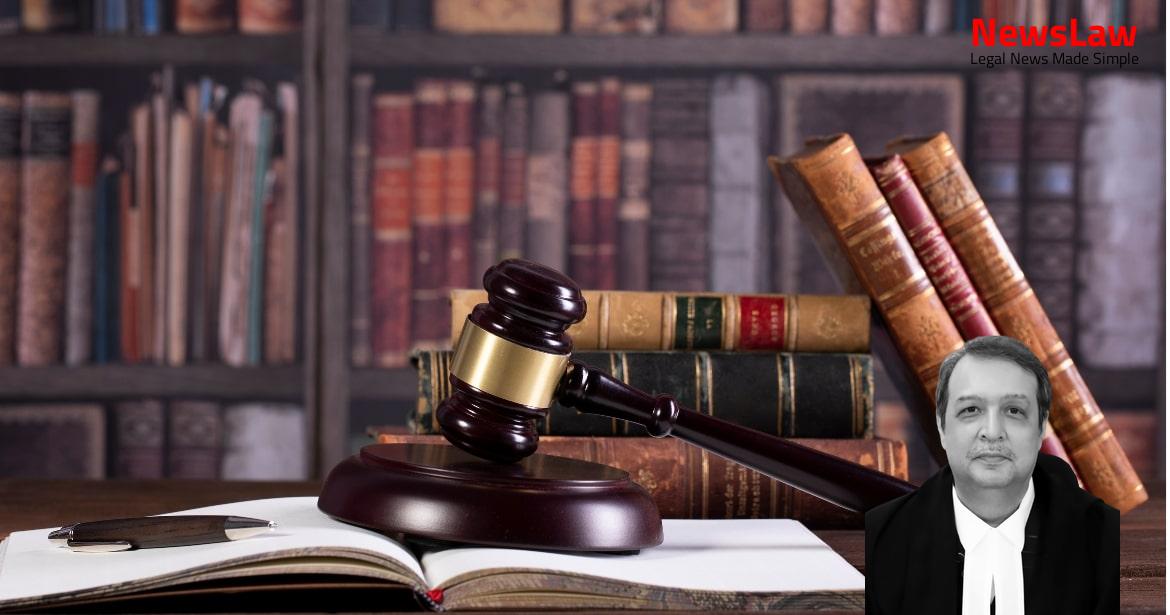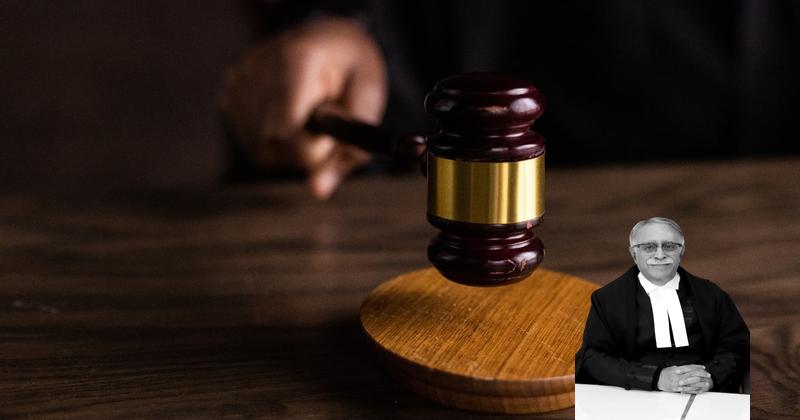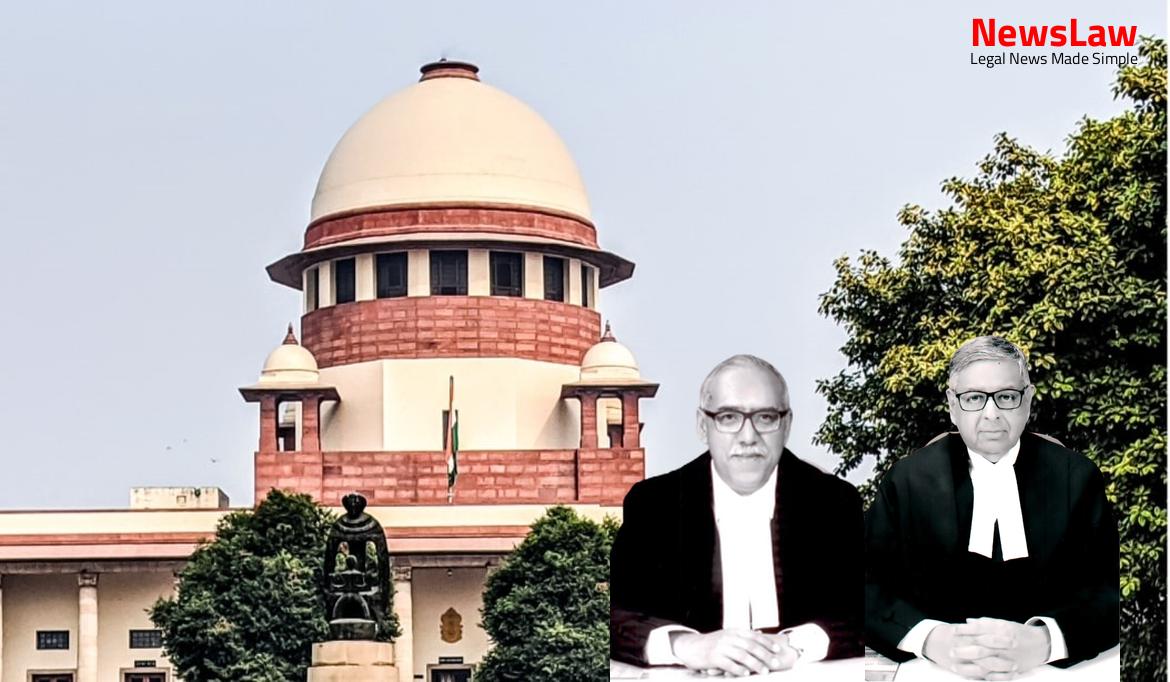The captioned appeal arises out of the final judgment in Criminal Appeal No 625 of 1999 dated 23.11.2022 passed by the High Court of Judicature at Allahabad at Lucknow by which the Appellant’s conviction by the Special Judge, (Prevention of Corruption Act, 1988) Lucknow in Case No 7 of 1996 was upheld. After analysing the evidence on record, the Trial Court concluded as under: “The prosecution has been successful in proving that accused J.K Rode being working at the post of a Public Servant as Assistant Commercial Manager, Northern Railway, Lucknow made a 2 demand of Rupees Five Hundred from Chief Ticket Inspector Shri Jai Prakash Narayan Upadhyay on 03.05.95 to dispose of the charge sheet issued against him and he was caught red handed receiving the bribe on 03.05.95 and he received Rs. A perusal of the Order dated 04.03.2016 reveals that despite repeated summoning of records of the trial, no reply was 3 received from the Court concerned and as a result, the District Judge was asked to furnish an explanation and, in any event, take steps for reconstruction of the record. The High Court, vide the impugned judgment dated 23.11.2022, upheld the conviction despite having noted on an earlier occasion that the reconstruction of records was not in accordance with rules and the admission of non-availability of material on record, for which the Appellant herein was in no manner responsible. The learned counsel places reliance on Shyam Deo Pandey and Others v. State of Delhi of the Delhi High Court; Raghuvir Sahai and Others v.
We must consider whether the non-availability of trial court records before the High Court and upholding conviction, despite the absence thereof, infringes the right to life and liberty of the accused enshrined under Article 21 of the Constitution of India.
Also Read: https://newslaw.in/supreme-court/differences-between-parties-and-witnesses-in-a-civil-suit/
If a right of production of documents at the trial stage exists, it is a natural corollary that the High Court, sitting in appeal, must benefit from those documents. Maneka Gandhi case has laid down that personal liberty cannot be cut out or cut down without fair legal procedure.
Procedure for hearing appeals not summarily dismissed.—(1)
If the Appellate Court does not dismiss the appeal summarily, it shall cause notice of the time and place at which such appeal will be heard to be given— (i) to the Appellant or his pleader; (ii) to such officer as the State Government may appoint on this behalf; (iii) if the appeal is from a judgment of conviction in a case instituted upon complaint to the complainant; (iv) if the appeal is under section 377 or section 378, to the accused, and shall also furnish such officer, complainant and accused with a copy of the grounds of appeal. (2) The Appellate Court shall then send for the record of the case, if such record is not already available in that Court, and hear the parties: Provided that if the appeal is only as to the extent or the legality of the sentence, the Court may dispose of the appeal without sending for the record. Section 423 of the 1898 Code, corresponds to Section 385 of the Code of Criminal Procedure, 1898. This requirement is necessary to be complied with to enable the Court to adjudicate upon the correctness or otherwise of the order or judgment appealed against not only with reference to the judgment but also with reference to the records which will be the basis on which the judgment is founded. This Court in Abhai Raj Singh (supra) (two-Judge Bench) while dealing with a conviction by the Trial Court under Section 302 of the IPC, 1860, while remanding the matter for consideration afresh by the High Court observed: “8. The order for reconstruction was on 1-11-1993 and the judgment of the High Court is in Criminal Appeal
Also Read: https://newslaw.in/supreme-court/high-courts-analysis-on-interference-with-arbitral-awards/
No 1970 of 1979 dated 25-2-1994.
If it is possible to have the records reconstructed to enable the High Court itself to hear and dispose of the appeals in the manner envisaged under Section 386 of the Code, rehear the appeals and dispose of the same, on their own merits and in accordance with law. If only reconstruction is not possible to facilitate the High Court to hear and dispose of the appeals and the further course of retrial and fresh adjudication by the Sessions Court is also rendered impossible due to loss of vital basic records — in that case and situation only, the direction given in the impugned judgment shall operate and the matter shall stand closed.
The plain language of Section 385 makes it clear that if the appellate Court does not consider the appeal fit for summary dismissal, it’must’ call for the record and Section 386 mandates that after the record is received, the appellate Court may dispose of the appeal after hearing the accused or his counsel. Taking note of Sita Ram (supra), the elapsed time between the occurrence of the offence and the appeal being finally decided, these courts have held that in the absence of essential documents such as the FIR or witness statements, a retrial too cannot be said to be serving the ends of justice. Search list dated 3.5.95 (5 pages); vii. One file containing charge-sheet (SF-II) of Sri JPN Upadhyay and Notesheet.
Also Read: https://newslaw.in/supreme-court/promotion-policy-for-rank-of-avm-in-indian-air-force/
Site plan dated 3.5.95 (1 sheet); 1 5 x.
Case Title: JITENDRA KUMAR RODE Vs. UNION OF INDIA (2023 INSC 419)
Case Number: Crl.A. No.-001269-001269 / 2023



